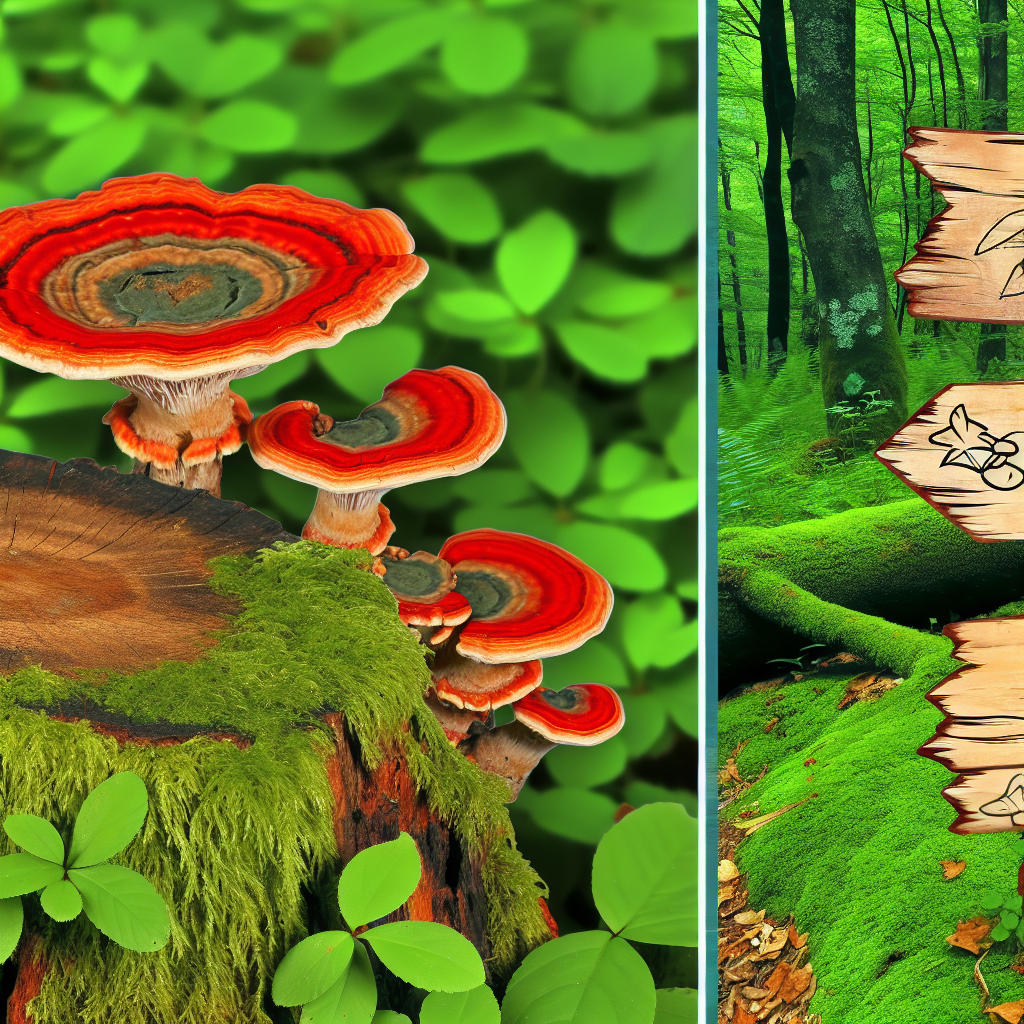Red-Belted Polypore Benefits: The Overlooked Medicinal Mushroom
In the world of therapeutic fungi, there’s one mushroom that’s finally ready to step into the spotlight—and it’s not the one you’ve already heard of. Meet the Red-Belted Polypore (Fomitopsis pinicola), a powerhouse bracket fungus hiding in plain sight.
Forest Treasure: What Is the Red-Belted Polypore?
In the ever-growing world of natural health and alternative wellness, mushrooms have earned their seat at the medicinal table. With increasing interest from both consumers and researchers, fungi like lion’s mane, chaga, and reishi have gained mainstream recognition for their purported health benefits. However, one mushroom remains largely in the shadows despite its promising therapeutic potential: the Red-Belted Polypore (Fomitopsis pinicola).
This bracket fungus, found widely across North America, Europe, and Asia, typically grows on coniferous trees. It’s easily identifiable by the reddish band that rings its woody, shelf-like body. Although not considered edible due to its tough consistency, it hasn’t stopped indigenous communities from brewing it into teas and tinctures for centuries. Cultures in North America and Siberia have traditionally used it to heal wounds, reduce inflammation, and strengthen overall vitality.
Why It Deserves the Spotlight: Bioactive Benefits of Fomitopsis Pinicola
Modern science is beginning to validate what ancient healers already knew: the Red-Belted Polypore is teeming with therapeutic compounds. It contains a robust mix of triterpenoids, polysaccharides, phenolic acids, and flavonoids. These compounds contribute to a wide range of health benefits, including:
– Antioxidant properties to neutralize harmful free radicals
– Anti-inflammatory effects for conditions like arthritis
– Antimicrobial features capable of inhibiting various harmful bacteria
– Potential anti-cancer activity based on preliminary studies
These chemical constituents put the Red-Belted Polypore on par with medicinal mushroom heavyweights—and in some ways, may offer a broader spectrum of applications.
The Science Speaks: What Clinical Research Is Revealing
Scientific exploration into the Red-Belted Polypore has surged, uncovering a wealth of promising data:
– A study in the Journal of Ethnopharmacology confirmed its strong antioxidant activity due to a high concentration of flavonoids and phenolic compounds. [Source]
– A 2015 in vivo study demonstrated impressive anti-inflammatory effects. The mushroom’s extracts significantly lowered inflammatory biomarkers in animal models. [Source]
– Published in Mycosphere, another study showcased antimicrobial capabilities—its extracts could inhibit common bacterial strains including E. coli and Staph. aureus. [Source]
– Most captivating is the anti-cancer potential. Research found that compounds in F. pinicola may induce apoptosis (programmed cell death) in breast and liver cancer cells—offering a fascinating area for future study. [Source]
A Natural Partner for Cannabis and Holistic Wellness
With the rise of functional wellness products and adaptogenic remedies, the Red-Belted Polypore stands out as a compelling ally in the cannabis space. It’s non-psychoactive, packed with therapeutic compounds, and offers naturally adaptive properties that may complement cannabinoids.
In combination with CBD or other adaptogens, this mushroom could enhance:
– Immune system responsiveness
– Cognitive function and mental clarity
– Stress resilience and mood regulation
– Gut-brain axis support for mental well-being
For cannabis professionals, this opens exciting opportunities to explore product development. Think infused teas, calming tinctures, or wellness capsules that pair Red-Belted Polypore with cannabinoids for well-rounded, holistic results.
Unlocking the Full Potential: The Future of Fomitopsis Pinicola
The Red-Belted Polypore may not be a household name—yet. But as research continues to evolve and consumer demand expands for potent, compound-rich natural remedies, this resilient bracket fungus deserves serious attention.
With proven antioxidant, anti-inflammatory, antimicrobial, and promising anti-cancer properties, integrating the Red-Belted Polypore into curated wellness plans is both a logical and exciting step forward. Whether you’re a cannabis consumer seeking mental balance or a wellness entrepreneur building out a product line, this underutilized mushroom may become your new favorite forest ally.
References
1. *Antioxidant and antimicrobial activities of the extracts from Fomitopsis pinicola* – Journal of Ethnopharmacology [Source]
2. *Anti-inflammatory activity of Fomitopsis pinicola in vivo* – PubMed [Source]
3. *Bioactive metabolites from wood-rotting fungi: Fomitopsis pinicola* – Mycosphere [Source]
4. *Apoptotic activity of Fomitopsis pinicola extracts in cancer cells* – Evidence-Based Complementary and Alternative Medicine [Source]
Concise Summary:
The Red-Belted Polypore (Fomitopsis pinicola) is a powerful medicinal mushroom that has been used for centuries in traditional medicine. Recent scientific research has revealed its potent antioxidant, anti-inflammatory, antimicrobial, and even anti-cancer properties, making it a compelling natural ally for wellness and cannabis products. With a diverse array of bioactive compounds, the Red-Belted Polypore deserves more attention as an overlooked therapeutic fungus.




